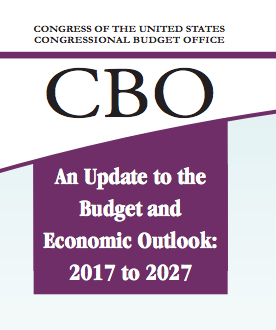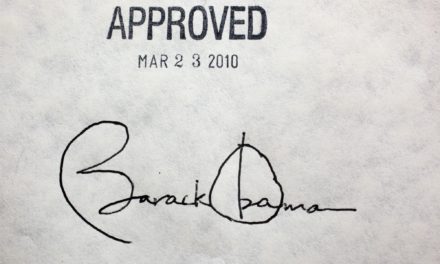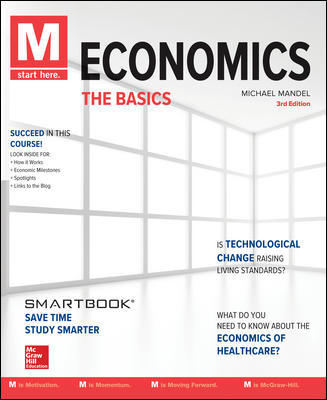August 2017:
If you want to see the real-world importance of economics, look no further than the Congressional Budget Office (CBO). The CBO, a group of about 200 economists and analysts, is in charge of ‘scoring’ legislative proposals. Like an impartial referee, the CBO issues an independent assessment of the fiscal impact that legislation will have over the next ten years, so that members of Congress know what they are voting on.
The CBO played a central role in the fight over repealing and replacing Obamacare. As Republicans tried to put together a bill that could pass the House and Senate, CBO analysts used economic tools to figure out the impact of these bills on the number of Americans with health insurance and on the federal budget deficit.
The CBO estimates, calculated using these economic tools, immediately become part of the political and policy debate. For weeks, the news was full of headlines like Senate Health Bill in Peril as CBO Predicts 22 Million More Uninsured, CBO score could determine fate of Senate health care bill and CBO: Obamacare repeal bill would raise number of uninsured by 32 million by 2026.
The CBO will play an equally important role in “scoring” tax reform proposals. We can already predict that a coming controversy over the CBO’s assessment of how much tax cuts affect future growth. Some economists believe that the CBO should use “dynamic scoring,” which builds in the assumption that tax cuts will partly pay for themselves, because they boost future growth and therefore future tax revenues. Others feel that the CBO should be more conservative in its calculations, and not count growth that may not happen.
But controversy is nothing new to the CBO. The organization was created in 1974 out of a budget fight between President Richard Nixon and the Democrats who then controlled Congress. Back then, all of the information about the federal budget came out of the White House. Congress needed its own independent source of economic analysis, so it created the Congressional Budget Office. The CBO was explicitly intended to be a non-partisan body focused purely on evidence-based projections—staff would be hired based on economic expertise and its reports would refrain from “value judgments.”
The first director of the CBO was Alice Rivlin, who insisted on her agency’s independence and non-partisan reputation. “We are not to be advocates,” Rivlin warned in a memo to employees in 1976 that barred her employees from any outside service to policy-oriented groups.

Alice Rivlin
The economists at the CBO often offer up sober assessments that balance out excessive optimism coming from both Republican and Democratic Administrations. For example, when President Bill Clinton tried to pass healthcare reform in 1993, the CBO released pessimistic scores that helped doom the effort to failure.
An essential part of the CBO’s mandate is making revenue and spending projections for the federal government. And the economists at the CBO do a pretty good job: a 2015 report showed that, over a thirty year period, the organization’s two-year revenue projections were off by an average of only 1.1 percent.
By nature, the CBO’s reliance on sober economic analysis draws criticism from politicians who would prefer a different answer. During the current debate over Republican efforts to repeal and replace Obamacare, the Trump administration and its allies have taken to attacking the CBO for its pessimistic estimates of the number of uninsured under their plans. While White House economic advisor Gary Cohn has stated diplomatically that he respects the CBO’s economists but believes they are “not capable” of analyzing proposals this large and dynamic, Rep. Roger Marshall (R-Kan.) has dismissed the organization entirely as “crazy” and worthy of “zero confidence.” Meanwhile, Democrats who are generally happy to repeat the CBO’s 20+ million fewer insured figure have fought with the CBO over other issues in the past.
But, overall, the CBO’s consistent place at the center of Washington debate demonstrates the value of economic analysis for policy. Every bill has both benefits and costs and without the input of economists, lawmakers would be unable to weight them and make the correct decision for their constituents. That’s why longtime Sen. Charles Grassley (R-Ia.) once opined that “that CBO is god around [Congress], because policy lives and dies by CBO’s word.” And at the CBO, economic analysis reigns supreme.
By Adam Lerner
Note: This textbook-based blog is explicitly non-political. We analyze current events for the beginning economics students without imposing our own views on the topic.
Key Terms
Budget Deficit
The excess of the federal government’s spending over its revenues.
Economics
The study of how individuals, businesses, and governments make decisions and trade-offs in the face of scarce resources.
Review Questions
Additional Readings
Sanger-Katz, Margot, 2017. “How to Read the C.B.O. Score of the Health Bill Like an Expert.” The New York Times, https://www.nytimes.com/2017/05/24/upshot/how-to-read-the-cbo-score-of-the-health-bill-like-an-expert.html.
Joyce, Philip G., 2015. “The Congressional Budget Office at Middle Age,” Hutchins Center on Fiscal & Monetary Policy (Brookings Institution) https://www.brookings.edu/wp-content/uploads/2016/06/PJ_WorkingPaper9_Feb11_Final.pdf.




